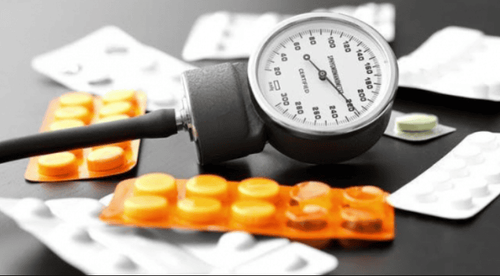Foods high in sugar, salt, and saturated fats can raise blood pressure and harm cardiovascular health. By avoiding these foods, you can take proactive control of your blood pressure. Instead, adopting a diet rich in fruits, vegetables, whole grains, and lean proteins can help keep your heart healthy.
1. Does Consuming Sweets Increase Blood Pressure?
Sugar plays a significant role in increasing the risk of hypertension (high blood pressure). The primary cause is a disruption in fructose metabolism when consuming excessive amounts of processed sugary foods. Excess fructose is converted by the liver into fat, leading to an increased risk of obesity, hypertension, type 2 diabetes, cardiovascular diseases, and even cancer.
Sugar consists of two main types: glucose and fructose. While glucose is metabolized by cells to provide energy, fructose is processed only in the liver. When you consume a large amount of fructose (such as from sweetened beverages and processed foods), it overwhelms the liver, resulting in excess fat storage. However, consuming natural sugars from fruits, which also contain fiber, vitamins, and antioxidants, is beneficial and does not harm the body.
Research shows that excessive sugar intake can raise systolic blood pressure by 6.9 mmHg and diastolic blood pressure by 5.6 mmHg. Sugary foods are also calorie-dense, and individuals consuming over 25% of their daily calorie intake from sugar are three times more likely to develop heart disease than those who consume less.
For further reading: Does Eating Sweets Reduce Stress?
2. Sugary Foods to Avoid
Studies indicate that reducing sugar intake by 2.3 teaspoons daily can lower systolic blood pressure by 8.4 mmHg and diastolic blood pressure by 3.7 mmHg. The recommended daily sugar consumption limits are:
6 teaspoons (25 grams) for women.
9 teaspoons (36 grams) for men.
Sugar and salt are often combined in processed foods, and both can elevate blood pressure if consumed in excessive amounts. Sodium intake, for example, should not exceed 2,300 mg per day—the equivalent of one teaspoon.
Some processed foods high in sugar and salt that should be avoided include:
Bread
Pizza
Deli meats and frozen meats
Canned soups
Burritos and tacos
Canned tomato sauce
Full-fat milk and ice cream
Cheese
Instead of these foods, prioritize fruits and vegetables with natural sugars that are beneficial for health, such as tomatoes, apples, apricots, kiwis, oranges, strawberries, blueberries, bananas, and avocados.
For further reading: Why Do You Feel Dizzy After Eating Sweets?

3. Recommended Diet for Hypertension
Adopting a healthy eating plan can reduce blood pressure both in the short and long term. Foods rich in potassium can quickly lower blood pressure by counteracting the effects of sodium. Additionally, foods high in nitrates, such as beets and pomegranate juice, can significantly reduce blood pressure. These foods also contain antioxidants and fiber, providing overall health benefits.
The American Heart Association (AHA) recommends the DASH diet (Dietary Approaches to Stop Hypertension) to help manage blood pressure. This diet focuses on consuming plenty of fruits, vegetables, whole grains, low-fat dairy, and lean proteins. By following the DASH diet, you can lower your blood pressure and maintain a healthy lifestyle.
When selecting processed or canned foods, choose products labeled as low-sugar, low- or no-sodium, or trans-fat-free.
For further reading: Guide to Diagnosing Hypertension
Please dial HOTLINE for more information or register for an appointment HERE. Download MyVinmec app to make appointments faster and to manage your bookings easily.
Reference source: healthline.com










